Business schools couldn't function without their professors. Not only do they teach and mentor future business leaders, they are also at the cutting-edge of research in finance, management, corporate social responsibility (CSR), and more.
Professors matter for rankings too. In the Financial Times' Global MBA rankings, 10% of a school' s rank is based on the research output of their faculty.
Entrepreneurship professors can be excellent MBA startup mentors, a CSR professor might inspire you to take on green initiatives, or a strategy professor could leave you with new tools for tackling your business problems.
In other words, MBA professors have a huge effect on your business school experience, and you should look into a school's professors when choosing where to apply.
To showcase the impact professors can have on their students—and the world at large—we asked the world's top schools to nominate a professor they want you to know about:
Read on or skip to a b-school of interest by clicking one of the links below:
National University of Singapore
From this list of nominees, we have named our top professors for green leadership and tackling inequality, as well as the BusinessBecause MBA professor of 2020. You can identify our winners by the orange sticker on their photo.
Thomas Roulet
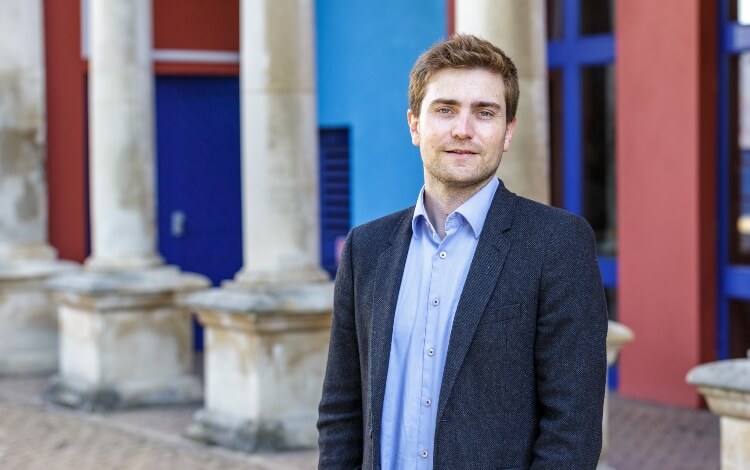
Age: 34
Teaches: Organisational Analysis, Organisation Theory, Organisational Behavior, Leadership. Deputy Director of MBA program.
Industry background: I worked in debt capital markets in London and then at the OECD before starting my academic career.
Current research: I'm currently finalising a book on the "Power of Being Divisive", focusing on how individuals and organisations are purposefully controversial to attract attention and position themselves.
Look out for the book at the end of next year! Broadly, my work revolves around the role of social evaluations (how do we perceive others?) and their impact on positive change.
Favorite thing about being a business school professor:
I love that every day is different—whether it is about meeting executives, students, journalists or conducting research. Every aspect is extremely rewarding.
We have a privileged position in society and some room to influence modern organisations and the future generations of managers.
Advice you would give your past self:
If I were to tell me that I would be a tenured faculty at the University of Cambridge I would probably not have believed it. I feel incredibly lucky I got a chance to teach, research and be part of such an institution.
Biggest challenge:
My family or my friends often joke that academics have an easy life and do not need to work a lot. Despite our flexible work-life, there is a of energy going into everything we do, and research at the highest level requires a huge commitment. I work a lot more than when I was a banker but I'm really passionate about what I do.
Advice for students:
When trying to publish papers in top outlets, we quickly learn the power of persistence and resilience to failure. We often do not see the progress we made—there are learning curves but also a tipping point beyond which something clicks, and the failure is turned into a success.
Lydia Price
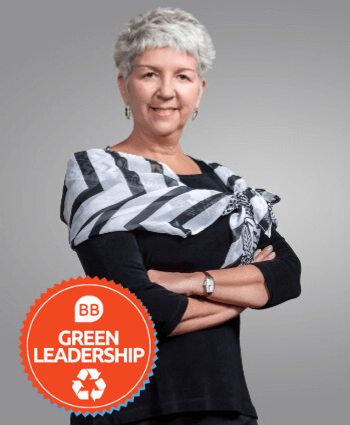
Teaches: Sustainability and Responsible Leadership-Marketing Strategy and Principles
Industry background: Marketing Research; Retailing
Current research: Sustainable Business Strategy
Favorite thing about being a business school professor:
My favourite thing is dynamism. The business world reinvents itself every decade and even more so here in China. For example,when I was doing my PhD research, we were still thinking about permanent beliefs that influence the way people shop.
That is not the centre of discussions anymore. The discussions have now moved to Consumer Decision Making, Experiences, and Digital Marketing Influences. Through this dynamism, I am able to always move in a new direction, which I really like. In the span of my career, I have made three major shifts, from marketing to sustainability to digital China.
Advice you would give your past self:
I have been pretty happy with the way my career has gone. But for the budding professors out there, I’d tell them to stay open-minded. I do see people get rigidly focused on a narrow topic and ignore new trends, especially because of the publishing demands.
I would just advise people to start with a big challenge that they find interesting and not be afraid of being the first one to tackle it.
Biggest challenge:
As a professor it is really hard to manage your time. You have to put a lot of blinders onto make sure your career is going where you want it to go and you have to be unrepentant about that. People sometimes over-commit, they do too much and burn out.
You just have to make decisions that work for you and go forward without agonising over it.
Advice for students:
Don’t forget the fundamentals. As managers you will not only have to make decisions, but also get others on board with your decisions.
For that you need to be a good communicator and be able to back it up with facts and data. In the end it all comes down to knowing who your customer is, what your value proposition is, how you are positioning yourself relative to them and what your advantage is.
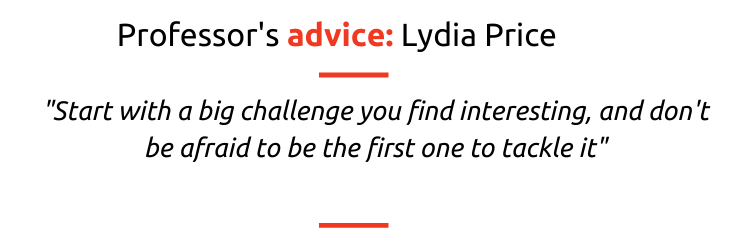
Darden School of Business
Gaurav Chiplunkar
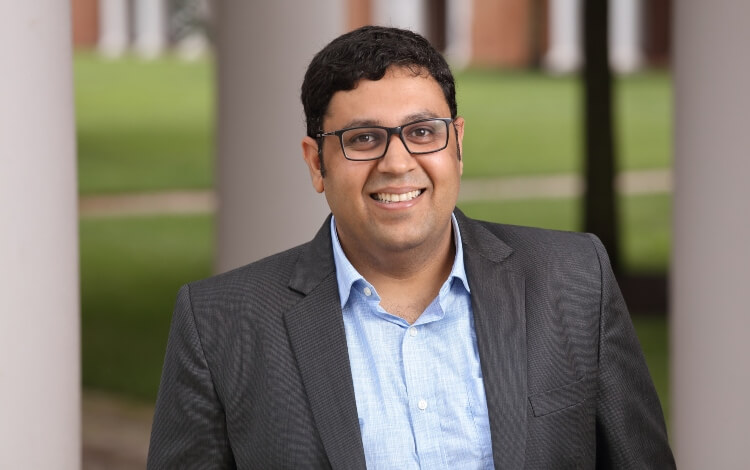
Age: 32
Teaches: Global Economics and Markets
Industry background: Currently a professor in the Global Economies and Markets group at the University of Virginia Darden School of Business. Prior to Darden, earned a PhD in Economics from Yale University.
Current research: My current research interests are in examining the economic consequences of technological change and adoption. In particular, there are three broad research areas that I am working on: the impact of digitization on poverty alleviation, barriers faced by women entrepreneurs, and the impact of online job search portals.
Favorite thing about being a business school professor:
Darden draws a pool of extremely talented students who come from diverse backgrounds and hence bring diverse experiences, ideas and insights to the classroom.
For me, my favorite part of being a professor is to be able to facilitate exchanges between students on a variety of topics and in the process, interact and learn from their insights.
Biggest challenge:
A diverse groups of students also brings a diverse set of challenges. Each student is unique in their background, experience, expectations etc. and therefore faces very different challenges.
I find it most challenging, yet most rewarding, to be able to identify the needs of a student and to be able to effectively support them in it.
Advice for students:
I try to encourage students to always be inquisitive never lose the spirit of questioning. From challenging the most fundamental assumptions of economics to exploring its more subtle nuances, I try to encourage students to approach each problem with an open mind—sometimes transformative solutions can be found in the most obvious places if only one thinks about them in a creative way!
Daniel Blaseg
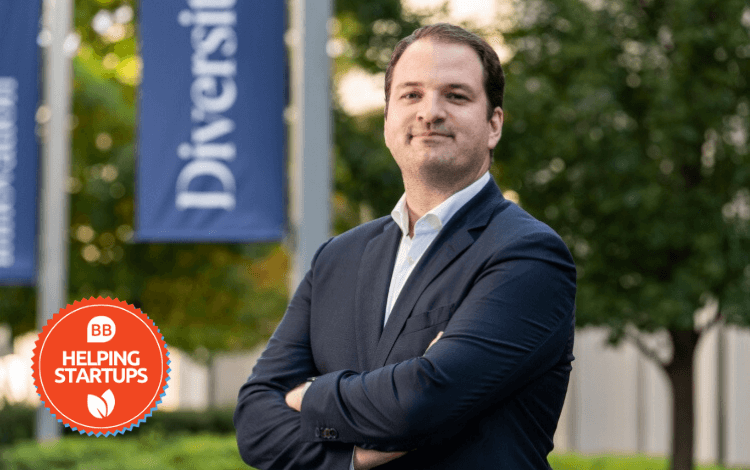
Age: 31
Teaches: Strategy and general management
Industry background: Four years in investment banking and corporate finance. CFO of two startups.
Current research: My current research focuses on why and how novel sources of entrepreneurial finance, such as crowdfunding, are used by entrepreneurs.
Favorite thing about being a business school professor:
The constant exposure to new ideas and different opinions.
Biggest challenge:
Finding the sweet spot in providing students with enough support to help them succeed but also enough challenges to help them grow.
Advice for students
Don’t take everything for granted.
Katie Coffman
Age: 34
Teaches: Negotiations (both to MBAs and in Executive Education)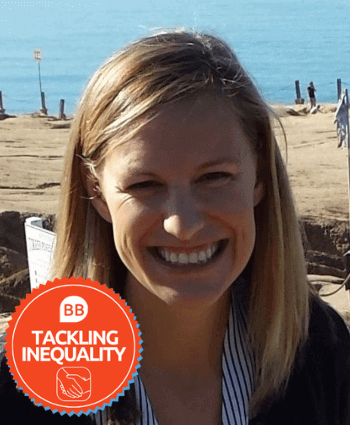
Industry background: After finishing my undergraduate degree at Williams College in 2007, I went straight to graduate school and received my PhD in Economics in 2012. I've been working as a professor since.
Current research: I'm currently studying how we can better design processes for recruiting, interviewing, and evaluating talent, with an eye toward reducing gender gaps in representation and advancement.
Favorite thing about being a business school professor:
I really appreciate being able to teach such a talented and diverse group of students. My students bring a huge variety of interesting backgrounds, experiences, and accomplishments with them into the classroom; it means I learn something new from them every time I teach.
Advice you would give your past self:
There will never be enough time to do everything that you'd like to do. So, look for opportunities to delegate effectively when you can, and learn to say no. While it's hard to say no in the moment, you won't regret carving out the time to pursue the projects you are most excited about.
Biggest challenge:
Finding the time to balance all the activities that I enjoy.
It's rewarding to be in the classroom and to be able to get to know my students better in office hours outside of class; I'm lucky enough to have the chance to talk with firm leaders about what they are up to in their careers so that I can bring those insights into my teaching and research; and I'm always eager to make headway on my own research and academic writing.
It can be hard to find time to do that all in a given semester, but it's a good problem to have.
Advice for students:
Be on the lookout for opportunities to create value!
Some students come into Negotiations focused on the more competitive-side of deal-making, approaching things as though most issues are win-lose.
In practice, there's room for value creation (not just value claiming) in most negotiations we face. Ask questions about the other parties' interests, be creative, and find ways to grow the pie.
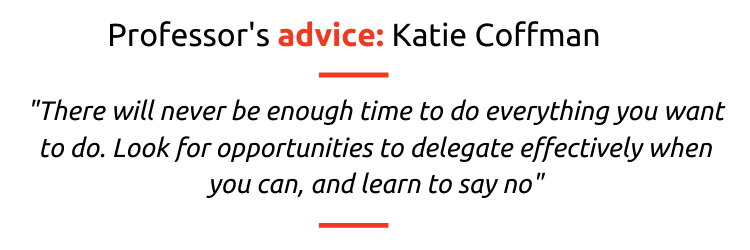
Kiran Pedada
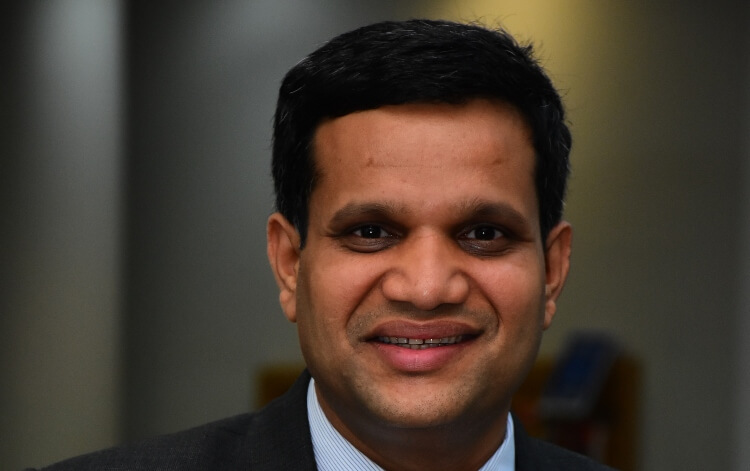
Age: 36
Teaches: Marketing
Industry background: Management Consulting and Corporate Strategy
Current research: I focus on two streams of research. My first steam explores inter-firm relationships such as international marketing alliances and M&As pertaining to firms in emerging markets.
My second stream focuses on creativity and innovation. One of my ongoing research projects looks at how acquiring developed market brands can help emerging market firms.
Favorite thing about being a business school professor:
Continuous learning. As a business school professor, I enjoy teaching and interacting with a group of very highly motivated and ambitious students. ISB students bring unique perspectives into the classroom discussions. Sometimes, these discussions provide ideas for my research projects.
Biggest challenge:
Striking a balance between theory and practice by catering to diverse needs of students in the classroom. Some students are more interested in gaining a deeper understanding of a theoretical framework, whereas others prefer more practical applications and key takeaways from the class.
Advice for students:
Focus on building relationships with others rather than networking. Building sincere relationships is the key to business success.
Georgina Hall
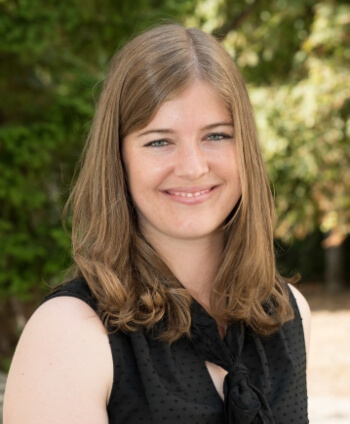
Age: 29
Teaches: Quantitative courses such as Decision Models and Quantitative Methods.
Current research: Optimization, in particular how to obtain effective approximations of optimization problems that are hard to solve on computers.
Favorite thing about being a business school professor:
Listening to my INSEAD colleagues talk about their research. I love hearing about initiatives for making businesses more sustainable, methods for removing bias from decision-making, and ways that a CEO’s personality impacts his or her organization.
My background is 100% engineering but it took me coming to a business school to realize that the topics I’ve always enjoyed discussing are very much business topics.
Advice you would give your past self:
I wish I’d known earlier on that research could be a viable career path, and a fun one too. I was not exposed to the academic world at all growing up—my mum is an English teacher and my dad is a lighting technician—so I held very outdated views on the academic profession. This means that I was quite late in the game when I did finally decide to seriously consider academia.
Biggest challenge:
Realizing that the buck stops with me. Not having a manager has massive upsides of course—how many people get to completely choose the direction in which they take their career?—but it can also feel quite daunting at times. If I make poor choices or research fails, I only have myself to blame.
Advice for students:
Sometimes it can be valuable to learn a topic even if you cannot see its immediate applicability: some of the best ideas have come about as a result of people learning tangential fields to the ones they are in and then intelligently connecting them.
Artem Timoshenko

Age: 28
Teaches: Marketing
Industry background: My research relies on close industry collaborations. I have recently worked with companies in grocery and fashion retail, financial services, market research, and technology industries.
Current research: I develop and apply new quantitative methods for marketing analytics and product development.
My current research develops new AI tools to improve aesthetic product design, and I work with retailers on the problems of targeting and optimizing marketing communications.
Favorite thing about being a business school professor:
Marketing practice constantly evolves and faces new challenges which provide a basis for impactful and managerially relevant research.
I enjoy working with companies to learn about different industries and develop new marketing approaches, and I enjoy sharing the findings with students and a broader audience.
Biggest challenge:
Time management. Being a business school professor assumes commitment and responsibilities to students, institution, and the academic field. My research also requires regular communications with companies and a deep focus on the data analysis.
Advice for students:
The business school environment provides numerous opportunities for career and personal development. We need to prioritize and stay focused to derive the most value from the business school experience.
MIT Sloan
Aithan Shapira
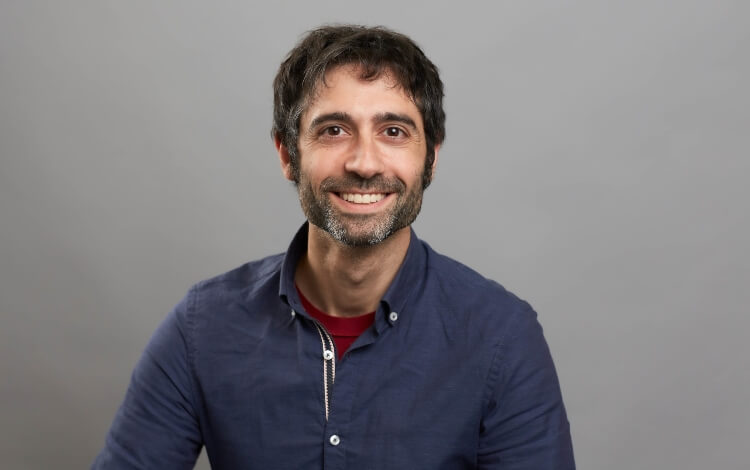
Age: 39
Teaches: Making to Think; Leadership in Practice: Making and Learning
Industry background: Skill development and (re)training
Current research: The ability to adapt to change from a skill development lens
Favorite thing about being a business school professor:
When students succeed in significant roles that they take on after graduating and reach out to share how their ongoing practices are developing them as leaders today.
Advice you would give your past self:
If I spoke with my 20 year-old self, I’d primarily encourage him to know that the difficulty of the disciplined practices that he was immersing himself in and his stick-to-itiveness for what he believed in would be worth the struggle twenty years later—being a leader or teacher in any area is mostly about modelling.
Biggest challenge:
Guiding my students through tough challenges rather than giving them easy answers.
Advice for students:
You can’t mistake-proof yourself, rather practice what you do when you do make a mistake in ways that bring you closer to those around you and to a greater purpose.
National University of Singapore
Joel Goh
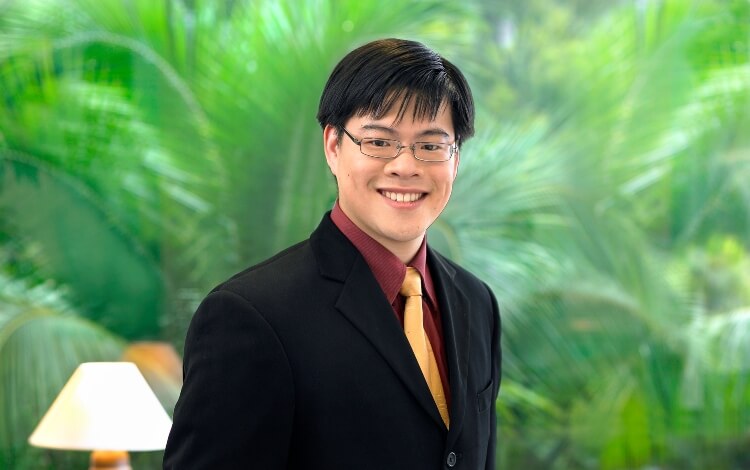
School: National University of Singapore Business School
Teaches: Technology and operations management
Industry background: Medical decision making and recommendations for health policy in areas including drug safety, workplace stress, and cost-effectiveness of new medical technology.
Current research: Healthcare and Supply Chain Analytics.
Favorite thing about being a business school professor:
The MBA students. It is always a treat for me to interact with them both in and out of the classroom. They come with such diverse backgrounds and interests, and I find that I learn so much even as I’m teaching them. The case-based approach we use in our classroom is a particularly helpful medium for us to discuss real business problems together and have a ton of fun while doing so.
I also love being able to spend my time outside of teaching working on research in analytics and operations. These sound like two different research areas but are really two sides of the same research domain. To me, this combined domain is truly fascinating.
Biggest challenge:
I guess the main challenge for me is that there are just so many worthwhile things to do, both on research and teaching fronts, but only 24 hours in a day. The hardest part for me is having to say “no” to some opportunities so that I can focus my limited time and energy on the most important things.
Advice for students:
I don’t see myself as someone who’s in a position to give advice, but there are two common refrains that I find myself repeating to many batches of students.
The first is that learning matters far more than grades. I think that as an MBA program, we should aspire to provide a transformational experience for our students, and I think that if students focus on grades excessively, they can miss out on valuable opportunities to stretch themselves and open their minds in ways that they couldn’t have imagined.
The second is that operations is just really cool.
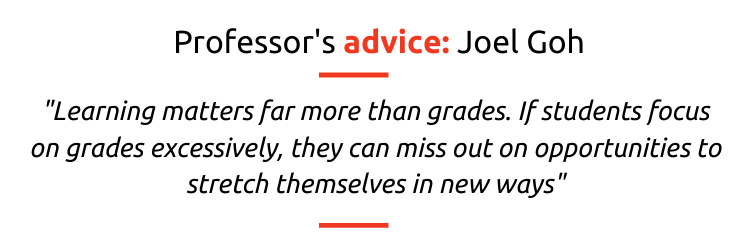
NYU Stern School of Business
Nate Pettit
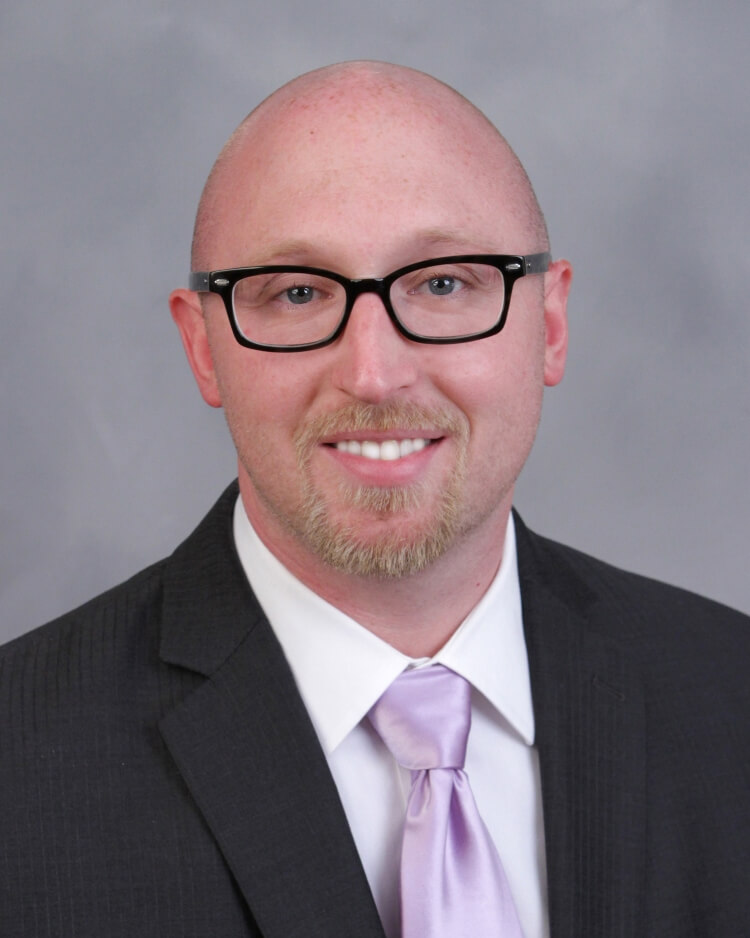
Age: 40
Teaches: Management and Organizations
Industry background: Before starting graduate school I worked on several projects related to organizational effectiveness for Cantor Fitzgerald and Citigroup.
Since becoming a faculty member I’ve been brought into a variety of companies to consult and speak about leadership, change initiatives, team dynamics, decision making, and organizational culture.
Current research: Mainly, the dynamics of social hierarchies and the psychology of being an underdog versus a favorite in competition.
Favorite thing about being a business school professor:
Academia isn’t typically thought of as dynamic, and yet my favorite thing about being a professor at NYU Stern is the opportunity to create change.
The way people work, organize themselves, and even the way we think about the role of business education and the skills that future business leaders will need, seems to be in constant flux.
Deciding how to respond to, and even forecast these changes, and then act on them is energizing. For instance, a top aim of our newly launched Leadership Accelerator at Stern is to develop our students’ psychological and behavioral agility so that they can respond to and drive change in their personal and professional lives.
This has a nice parallel to the skills needed to be an effective educator or business school leader.
Biggest challenge:
Trying to balance the immense responsibility I feel for my students with research and the administrative aspects of the job. I teach hundreds of MBA students each year. All have left their jobs to attend school full time, many are taking out loans that they will be paying back for years, and some have travelled great distances far away from their loved ones.
Learning about my students, both their struggles and their aspirations, is among the great privileges of this job.
At the same time, there’s obviously pressures to do research and publish, which takes serious time and concentration, and exciting opportunities to drive initiatives within the school.
Advice for students:
You should probably ask them, although I’m slightly fearful of what they might say!
I don’t know who to attribute this to, but I really like the quote “life begins at the edge of your comfort zone.” It’s an easy phrase to reflexively agree with but a much harder one to actually live.
If a student is truly serious about growing and making business school a transformative experience, they have to be brave enough to repeatedly put themselves in situations where they might fail.
Oxford Saïd
Michael Gill
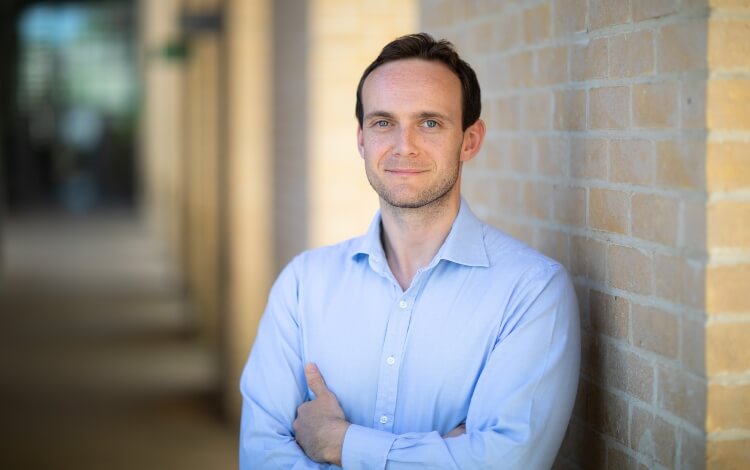
Age: 37
Teaches: Organizational studies
Industry background: Prior to starting my academic career, I worked in sales and marketing management positions for FMCG companies including Unilever and PepsiCo across a range of brands. I also worked at AT Kearney as a consultant.
Current research
My primary research focus is on the experience of modern work, which I seek to examine from the perspective of workers themselves.
Recently, my work has explored the role of emotions and mental health across different occupational groups including accountants, elite chefs, lawyers, management consultants and police officers.
Favorite thing about being a business school professor:
The opportunity to work with very bright students from around the world who possess such diverse employment experiences.
This diversity yields very rich discussions in the classroom, particularly in terms of theories and case studies. I find students’ differing and often divergent interpretations fascinating as well as a source of inspiration for much of the research that I conduct.
Biggest challenge:
As in most occupations, you must juggle several different tasks.
You may be conducting a research study, applying for a grant for the next research study, writing research papers, preparing teaching materials, developing new case studies or performing a range of other administrative tasks.
The challenge is to manage these tasks such that they remain complementary so that, for example, my research projects continue to inform my teaching and vice versa.
Advice for students:
I suggest that we all, students and professors, consider the assumptions of the (many) management models that are available. All models have limitations and it is
important to reflect on these. While such models can be of great use, I caution against unquestioning application.
Marissa King
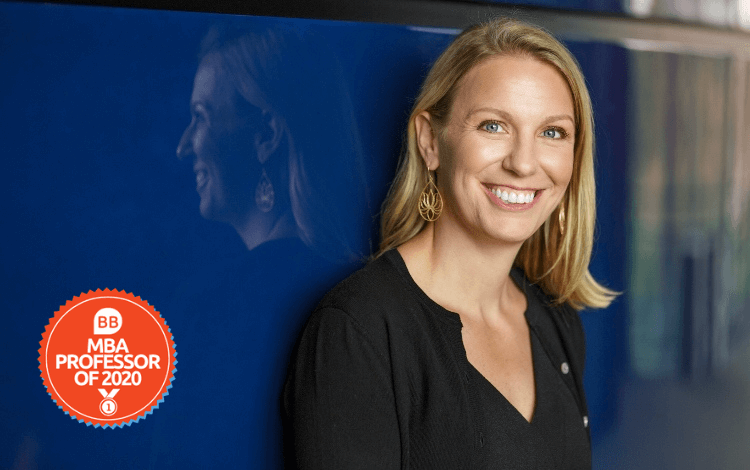
Age: 40
Teaches: Managing Groups and Teams, Global Virtual Teams
Industry background: Healthcare
Current research: I’m currently examining the role that social influence and social networks played in helping to reduce inappropriate prescribing of opioids.
Moving forward, I’m interested in understanding how we can increase access to medication assisted treatment for opioid use disorder.
Favorite thing about being a business school professor:
What we teach in the classroom has the potential to have a significant real world impact. Nothing brings me more professional joy than receiving a note from someone describing how they took what we discussed in class back to their organization and it created a positive change.
Advice you would give your past self:
Be more willing to let go and trust that there is enough collective knowledge in the room to get where we need to go.
Biggest challenge:
There are a lot of competing demands. The challenge is to figure out where I can create the most value. What’s the most valuable piece of advice you give your students? Be willing to try to do things differently. You are here to learn and grow.
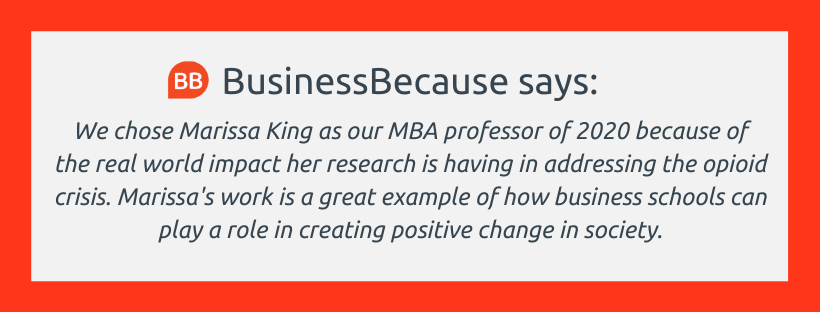
METHODOLOGY
For our MBA professors list, we reached out to the world's top 25 business schools as ranked by the Financial Times in 2019.
We asked each school to nominate one notable professor, whose work they wanted prospective students to know about. We only included schools who responded to our survey.
Why not read our MBA Startups Feature:



